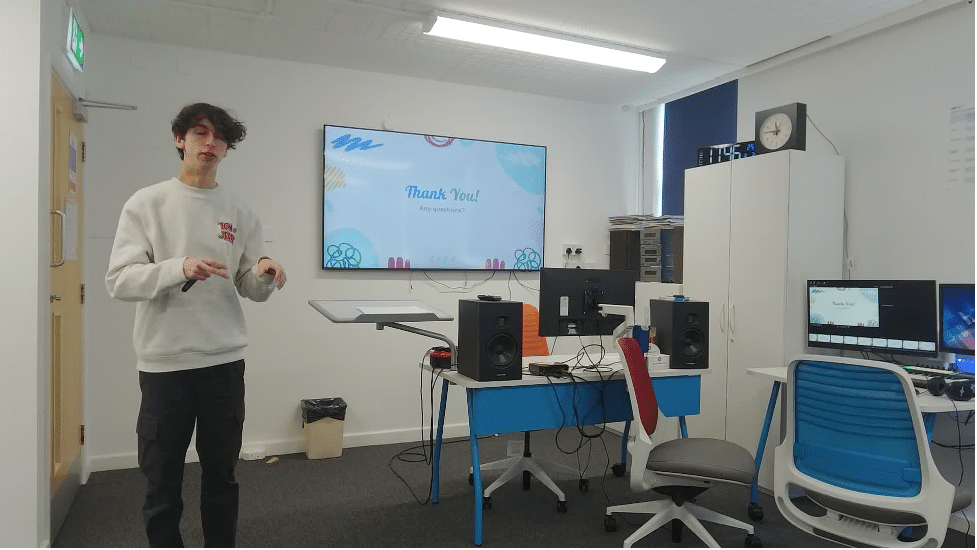When I started working with web development, PHP was a scrappy little language that felt like it was held together with duct tape and a little bit of luck. We were using PHP 4, and honestly, it felt like someone had built a racecar out of a lawnmower engine. Yet, here we are, almost two decades later, and PHP is still very much alive, kicking, and — dare I say — thriving. Above Bits, a team of seasoned web developers in Charlotte, has witnessed every twist and turn of this journey. Our experience with PHP has been like a long, complicated relationship — full of frustrations, small victories, and late-night debugging.
Contents
The Wild Early Days of PHP

In the early 2000s, PHP was synonymous with “dynamic websites.” Everyone from hobbyist bloggers to small businesses in Charlotte was clamoring for something that wasn’t just static HTML. PHP provided that spark, but it also came with quirks. You’d write some code that would either work beautifully or crash with a vague error message that would send you down a rabbit hole of obscure forum posts. One of the biggest challenges was dealing with security vulnerabilities. SQL injections were rampant because developers often mixed HTML and PHP directly without sanitizing inputs. If I had a dollar for every time someone embedded raw user input in a database query, I could buy Twitter — twice.
PHP’s Evolution: From Quirky to Reliable

People love to complain about PHP, saying it’s outdated or clunky. While that may have been true during the early days, the reality is that modern PHP — particularly since version 7 — has matured into a robust and efficient language. Above Bits’ developers have embraced each upgrade, from PHP 5’s introduction of object-oriented programming to the drastic performance improvements in PHP 7.
PHP 8, however, marked a turning point, bringing just-in-time compilation (JIT), which significantly boosted performance. This meant that web developers in Charlotte could now build faster and more efficient websites without switching to more complex languages like Python or JavaScript. I’ll be the first to admit that when JIT came out, I didn’t expect much, but seeing it shave off milliseconds from load times changed my mind.
What Makes PHP Still Relevant?
Globally, about 77% of all websites still use PHP in some capacity, including giants like Facebook and WordPress. Despite the rise of JavaScript-based frameworks and languages like Python and Ruby, PHP continues to dominate server-side development because it’s practical and affordable. Above Bits relies on PHP for many client projects because of its balance between ease of use and scalability.
Does it have downsides? Of course. It can be inconsistent, especially when working with older codebases where legacy syntax clashes with modern practices. I’ve found that upgrading PHP versions can be like playing a game of Jenga—pull out the wrong function, and the whole site collapses. But that’s where experience counts. Web developers in Charlotte, Above Bits, know how to manage these transitions without breaking the site or the budget.
Frameworks That Changed the Game
While raw PHP was once the go-to, frameworks like Laravel and Symfony changed the game. Laravel, in particular, became popular because it brought elegance to an otherwise chaotic language. It’s like taking your old, beat-up car and giving it a luxury interior. You still have the same engine, but it’s smoother, more refined, and easier to maintain.
Above Bits embraced Laravel because of its rich feature set, including routing, middleware, and an integrated ORM called Eloquent. One of our most complex projects involved building a custom e-commerce platform where we needed seamless integration between the front end and back end. Laravel made it possible to deliver a sophisticated product without losing our sanity.
Balancing Tradition and Modernity
One of the most intriguing aspects of being a web developer in Charlotte today is balancing traditional web practices with new trends. Clients often come to us wanting to use the latest technology, but sometimes, the shiny new framework isn’t the best choice. For instance, while JavaScript frameworks like React and Vue are gaining traction, PHP still handles back-end tasks with a simplicity that can’t be matched.
We’ve found that mixing PHP with modern front-end technologies is often the best approach. For example, combining a Laravel back end with a Vue.js front end allows us to build dynamic, interactive applications without sacrificing performance. Above Bits has mastered this hybrid approach, making us uniquely capable of delivering modern web experiences without abandoning the stability PHP offers.
The MariaDB Connection
One of PHP’s long-time companions is MySQL, but in recent years, MariaDB has emerged as a strong alternative. Created as a fork of MySQL by the original developers after Oracle acquired it, MariaDB has positioned itself as a community-driven, open-source solution with improved performance. Above Bits has transitioned many legacy MySQL projects to MariaDB, especially for clients looking for better performance without losing compatibility.
Globally, companies like Google and Wikimedia have adopted MariaDB for good reasons. It offers better replication, a more liberal licensing model, and enhanced features like virtual columns and better support for JSON. However, it’s not without challenges. Some developers find compatibility with older MySQL scripts problematic, but with some tweaking, Above Bits has consistently made it work.
Why Above Bits Stays Ahead
Staying ahead in the web development world requires a willingness to evolve. At Above Bits, we don’t cling to outdated practices but don’t jump on every trend that pops up. Our developers keep learning and adapting, from mastering new PHP features to experimenting with CSS frameworks like Tailwind and Bootstrap.
One of the reasons our clients in Charlotte appreciate our work is our commitment to transparency. We’ll tell you when a solution might not work or when maintaining legacy code is more hassle than starting fresh. Plus, we keep our services affordable, which our clients value, especially when other firms charge exorbitant rates for web development in Charlotte.
If you’re curious about how we balance tradition and innovation, check out our development philosophy and see why we’ve stayed relevant for so long.
Embracing Change Without Losing Roots
One thing I’ve learned over the years is that web development is like fashion—trends come and go, but some things never go out of style. Clean, efficient code is one of those things. At Above Bits, we’ve seen frameworks rise and fall and languages gain popularity only to fizzle out, but PHP has remained a constant, mostly because it gets the job done without unnecessary complexity.
The Changing Face of Web Development
The world of web development has transformed dramatically over the past 20 years. I remember a time when PHP scripts were scattered throughout HTML files like sprinkles on a cupcake. Now, with frameworks like Laravel and Symfony, we have structure, security, and scalability built in. However, not every change is universally loved.
Developers worldwide have voiced concerns about the increasing complexity of modern PHP frameworks. The simplicity that made PHP popular is somewhat buried under layers of features. While Laravel’s built-in authentication, ORM, and routing are excellent, they also come with a learning curve. Some developers feel overwhelmed when transitioning from older, simpler PHP code to modern frameworks. Above Bits understands this struggle and takes a balanced approach, using these advanced tools where necessary but sticking to the basics when simplicity serves the project better.
The Reality of Complex Web Projects
One of the biggest challenges for web developers in Charlotte is handling projects that evolve beyond their original scope. Clients often start with a simple website, and over time, it turns into a full-fledged application with payment gateways, user dashboards, and third-party integrations. This is where our experience really shines.
I recall a project where we started with a small, static site, and within a year, the client wanted an e-commerce platform integrated with their CRM. Switching from a basic PHP setup to a Laravel application required not just technical knowledge but careful planning to ensure minimal downtime. It’s easy to fall into the trap of just adding more code to an existing structure, but Above Bits takes the time to refactor, ensuring that the final product remains maintainable and scalable.
Coding for Performance — A Global Perspective
Performance optimization is no longer optional. Efficient coding practices are essential in a world where milliseconds can impact conversion rates. One notable example comes from Google itself. In 2010, Google experimented by intentionally slowing down its search results. They found that even a half-second delay reduced traffic by 20%. That’s why Above Bits focuses on speed from the very first line of code.
With PHP, one of the most significant performance gains comes from optimizing database queries. Lazy loading, caching results, and using prepared statements are crucial techniques. In Charlotte, where businesses increasingly rely on an online presence, these optimizations directly impact revenue. MariaDB has been a game-changer here, offering faster replication and better indexing than older MySQL versions. Our team at Above Bits has fine-tuned dozens of databases, ensuring that queries are optimized for speed and efficiency.
CSS — The Unseen Hero
People often underestimate the role of CSS in performance. While PHP handles the logic, CSS determines how fast and smooth the user experience feels. It’s common to see CSS files bloated with unnecessary styles from various frameworks. At Above Bits, we use tools like PurgeCSS to eliminate unused styles, making the site lighter and faster. This might seem like a small detail, but when you’re competing with thousands of other websites, every optimization counts.
Tailwind CSS has also become a favorite among our team because of its utility-first approach. Instead of writing endless CSS rules, we use small, reusable classes. This speeds up development and keeps the CSS file size in check. Some developers still swear by Bootstrap for its grid system and pre-built components, but Tailwind offers more flexibility without being overly opinionated.
Affordable Doesn’t Mean Cheap
One misconception that people often have is that affordable web development means cutting corners. Above Bits prides itself on being affordable without sacrificing quality. This approach is essential in a place like Charlotte, where businesses range from startups to established enterprises. We maintain cost efficiency through smart coding practices and careful resource management.
While some companies charge sky-high rates for custom development, we leverage open-source technologies whenever possible, reducing licensing fees. Technologies like PHP, MariaDB, and Tailwind CSS are perfect. Some enterprise solutions offer high performance and scalability without the hefty price tags.
The Human Touch in Web Development
What really sets Above Bits apart is the human element. We’re not just a team of code monkeys churning out websites; we’re problem solvers, collaborators, and sometimes therapists for stressed-out business owners. One of our favorite client stories comes from a local business owner in Charlotte who offshore developers had burned. They handed us a tangled mess of outdated PHP code, and we not only salvaged the project but made it faster and more secure than ever.
Our clients often tell us their greatest appreciation is our willingness to communicate. We’re upfront about potential challenges and don’t hesitate to explain why a particular solution might not work. This honesty has helped us build long-term relationships, and it’s something we’ll never compromise on.
The Future of PHP and Web Development
Looking ahead, it’s clear that PHP isn’t going anywhere. With continued improvements and a strong community, it remains one of the most reliable choices for server-side development. Above Bits is committed to staying on the cutting edge, whether that means adopting the latest version of PHP or integrating new front-end technologies.
As web developers in Charlotte, staying relevant means more than just updating your skills — it means understanding the community, knowing your clients, and delivering lasting solutions. Whether it’s PHP, HTML, CSS, or a new framework that emerges tomorrow, we’re ready to tackle it.
If you want to understand why we’ve remained a trusted partner for businesses for nearly two decades, take a moment to explore our development process. You’ll see why our approach works and why clients keep returning year after year.
Final Thoughts
Web development constantly evolves, but clean code, performance, and communication principles never change. At Above Bits, we’ve spent almost 20 years perfecting our craft. We’re proud of where we started and excited about where we’re going. Whether you’re looking for advice on your next project or just want to chat about the latest tech trends, we’re here, and we’re ready to help.
If you’re in Charlotte and need reliable, affordable, and forward-thinking web developers, reach out to Above Bits. We’ll make your vision come to life without the headaches and without breaking the bank.

